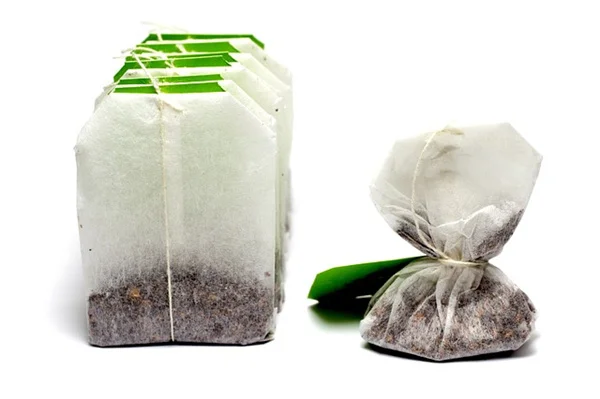Can your gut bacteria make you gain weight? The answer is: Yes, certain gut bacteria are strongly associated with obesity - and they affect men and women differently! Recent research from Spain analyzed 361 adults and found that obese individuals typically lack protective bacteria like Christensenella minuta, while harboring different obesity-linked microbes based on gender. For men, it's Parabacteroides helcogenes and Campylobacter canadensis causing trouble, while women show higher levels of three Prevotella species. Though we can't say these bacteria directly cause obesity yet, one thing's clear: feeding your microbiome the right foods is crucial for maintaining a healthy weight. Let me show you exactly how your gut bacteria might be influencing your scale - and what you can do about it starting today!
E.g. :Sarah Ferguson's Melanoma Diagnosis: Early Detection Saves Lives
- 1、Your Gut Bacteria Might Be Influencing Your Weight – And It's Different For Men & Women
- 2、The Hidden World Inside You: More Than Just Digestion
- 3、FAQs
Your Gut Bacteria Might Be Influencing Your Weight – And It's Different For Men & Women
The Gut-Obesity Connection: What We Know So Far
Ever wonder why some people seem to gain weight easier than others? Well, your gut bacteria might be playing a bigger role than you think! Recent studies show that the tiny organisms living in your digestive system could be influencing your weight in surprising ways.
Here's the fascinating part: Researchers found that certain bacteria appear to promote obesity, while others might actually help protect against it. And get this - these effects aren't the same for men and women! While we don't have definitive proof yet that gut bacteria directly cause obesity, the connections are getting harder to ignore.
Breaking Down the Spanish Study
Let's look at some concrete numbers from that Spanish study everyone's talking about:
| Factor | Men | Women |
|---|---|---|
| Protective Bacteria Lacking | Christensenella minuta | Christensenella minuta |
| Obesity-Linked Bacteria | Parabacteroides helcogenes, Campylobacter canadensis | Prevotella micans, Prevotella brevis, Prevotella sacharolitica |
This research involved 361 adults (about 70% women) with an average age of 44. Instead of just using BMI like most studies, they created a more comprehensive "obesity index" that considered three factors: BMI, body fat percentage, and waist circumference.
 Photos provided by pixabay
Photos provided by pixabay
Why Your Gut Bacteria Matter More Than You Think
Did you know your gut is home to about 100 trillion microorganisms? That's more cells than your entire body has! These little guys don't just help digest food - they're constantly sending signals that affect everything from your immune system to your metabolism.
Here's a fun fact that might surprise you: Some bacteria like E. coli can actually promote weight gain by triggering inflammation in your body. On the flip side, others like Christensenella minuta appear to have protective effects. The key takeaway? Not all bacteria are created equal when it comes to weight management.
Gender Differences in Gut Bacteria
Now here's where things get really interesting. The study found that while both obese men and women lacked protective Christensenella minuta, the obesity-linked bacteria were completely different between genders:
For men, it was Parabacteroides helcogenes and Campylobacter canadensis causing trouble. Women, on the other hand, showed higher levels of three different Prevotella species. This suggests that future treatments might need to be gender-specific to be truly effective.
Practical Steps to Boost Your Gut Health
So what can you actually do about all this? While we're waiting for more research, here are some gut-friendly habits you can start today:
1. Feed your microbiome with plenty of fiber-rich foods like whole grains, vegetables, and fruits
2. Include resistant starches (found in foods like cooled potatoes, green bananas, and legumes)
3. Diversify your diet - different bacteria thrive on different foods
Here's a simple trick I love: Before each meal, ask yourself: "Have I fed my microbiome today?" If not, add some fiber-rich foods to your plate. Your gut bacteria will thank you!
 Photos provided by pixabay
Photos provided by pixabay
Why Your Gut Bacteria Matter More Than You Think
You might be wondering - can't I just take probiotics and call it a day? Well, here's the reality check from experts: We're not there yet. While probiotics can be helpful for certain conditions, we don't have enough evidence yet to recommend specific strains for weight management.
Dr. Bhardwaj puts it perfectly: "Patients often want a quick fix, but the truth is we need more research before we can prescribe specific probiotics for obesity treatment." The best approach right now? Focus on whole foods that naturally support a diverse, healthy gut microbiome.
Looking Ahead: What Future Research Might Reveal
While this study gives us exciting insights, it's important to remember it shows associations, not causes. The million-dollar question remains: Do these bacteria actually cause obesity, or are they just reflecting other metabolic changes?
Future research will need to explore whether modifying gut bacteria can directly impact weight. Imagine if we could develop personalized probiotic treatments based on someone's gender and unique microbiome profile! We're not there yet, but studies like this bring us one step closer.
Your Gut Health Action Plan
Let's make this practical. Here's your 3-step gut health boost:
1. Start with breakfast: Swap sugary cereal for oatmeal with berries and flaxseeds
2. Lunch upgrade: Add a colorful salad with lots of different veggies
3. Dinner tweak: Include some resistant starch sources like cooled potatoes or legumes
Remember, improving your gut health is a marathon, not a sprint. Small, consistent changes add up over time. And who knows? As we learn more about these fascinating gut bacteria, we might discover even more ways they influence our health beyond just weight!
The Hidden World Inside You: More Than Just Digestion
 Photos provided by pixabay
Photos provided by pixabay
Why Your Gut Bacteria Matter More Than You Think
Think of your gut microbiome like a bustling city where different bacteria neighborhoods communicate constantly. These microbes don't just process food - they produce neurotransmitters that can influence your mood and cravings. Ever had a sudden urge for chocolate or chips? That might be your gut bacteria talking!
Here's something wild: Your gut bacteria can actually affect how many calories you absorb from food. Some people's microbes extract more energy from the same meal than others. No wonder weight management feels so personal! This explains why two people eating identical diets might see completely different results on the scale.
The Sleep-Gut Connection You Never Knew About
Did you realize your bedtime routine impacts your gut bacteria? Poor sleep can throw your microbiome out of whack, which might explain those midnight snack cravings. Research shows that people who sleep less than 7 hours tend to have less diverse gut bacteria.
Here's a fun experiment to try: For one week, go to bed 30 minutes earlier and notice if your food cravings change. Many of my clients report feeling less drawn to sugary breakfasts when they're well-rested. Your gut bacteria love routine almost as much as they love fiber!
Stress: The Silent Gut Disruptor
Why does stress make us reach for comfort food? Your gut bacteria might be part of the answer. When you're stressed, your body produces cortisol, which can alter your microbiome balance. This creates a vicious cycle - stressed gut bacteria might actually make you feel more anxious!
Here's a simple stress-busting trick that helps your gut: The "5-5-5 breathing method" (inhale for 5 seconds, hold for 5, exhale for 5). Doing this before meals helps activate your "rest and digest" mode, creating a better environment for your gut bacteria to thrive.
Exercise: The Unexpected Gut Booster
You probably know exercise is good for weight management, but did you know it also changes your gut bacteria? Regular physical activity increases microbial diversity, which scientists associate with better metabolic health. Even better? You don't need to run marathons to see benefits.
Here's what I tell my clients: Start with whatever movement you enjoy - dancing, walking, swimming - and aim for consistency rather than intensity. Your gut bacteria respond better to regular, moderate exercise than occasional intense workouts. Who knew your microbiome could be your workout cheerleader?
The Fiber Paradox: Why More Isn't Always Better
Wait a minute - if fiber's so great for gut bacteria, shouldn't we all be eating massive amounts? Not so fast! Suddenly increasing fiber can cause bloating and discomfort if your microbiome isn't ready for it. Think of it like training for a marathon - you wouldn't run 26 miles on day one!
Here's a smarter approach: Gradually increase fiber by about 5 grams per week while drinking plenty of water. If you experience discomfort, back off slightly and try again the next week. Your gut bacteria need time to adjust their populations to handle different fibers.
The Antibiotic Dilemma: Protecting Your Microbiome
Ever taken antibiotics and noticed changes in your digestion or weight? That's because antibiotics don't discriminate - they wipe out both harmful and beneficial bacteria. One course of antibiotics can alter your gut microbiome for months!
If you need antibiotics, here's how to support your gut: Eat fermented foods like yogurt, kefir, or sauerkraut afterward (but not during antibiotic treatment). Consider a broad-spectrum probiotic supplement, though research is still evolving on which strains are most beneficial. Most importantly, give your microbiome time to recover with plenty of plant foods.
Gut-Friendly Grocery Shopping Made Simple
Next time you're at the store, try this microbiome-friendly shopping strategy: Fill your cart with at least 5 different colors of produce. Different colored plants contain various polyphenols that feed different beneficial bacteria. Here's a quick cheat sheet:
| Color | Food Examples | Beneficial Bacteria Supported |
|---|---|---|
| Red | Tomatoes, strawberries, red peppers | Bifidobacteria |
| Purple/Blue | Blueberries, blackberries, red cabbage | Lactobacillus |
| Green | Spinach, broccoli, green apples | Akkermansia |
Remember, you don't need to overhaul your diet overnight. Start by adding one new colorful food each week and notice how your digestion and energy levels respond. Your gut bacteria will reward you for the variety!
The Power of Food Combining
Here's a pro tip most people miss: How you combine foods matters as much as what you eat. Pairing fiber-rich foods with healthy fats helps slow digestion, giving your gut bacteria more time to work their magic. Try these winning combos:
- Avocado on whole grain toast
- Olive oil drizzled over roasted vegetables
- Nuts mixed into your oatmeal
These combinations help stabilize blood sugar while providing diverse nutrients for your microbiome. Plus, they keep you fuller longer - a win-win for your gut and your waistline!
Listening to Your Gut (Literally)
Your body sends signals when your microbiome needs attention. Do you often feel bloated after meals? Crave sugar constantly? Feel sluggish in the afternoons? These might be signs your gut bacteria are out of balance.
Try keeping a simple food-mood journal for a week: Note what you eat, how you feel afterward, and any cravings. You might spot patterns you never noticed before. Many clients discover that certain "healthy" foods don't actually agree with their unique microbiome.
The Future of Personalized Nutrition
Imagine walking into a grocery store where your shopping list gets customized based on your gut microbiome analysis. While we're not quite there yet, several companies now offer at-home gut testing kits. The science is still evolving, but these tests can provide fascinating insights into your microbial makeup.
Here's my take: While these tests can be interesting, you don't need high-tech solutions to start supporting your gut health today. Focus on the basics - diverse plants, fermented foods, stress management, and good sleep. The fancier interventions can come later if needed!
E.g. :Interplay between dietary intake, gut microbiota, and metabolic ...
FAQs
Q: What gut bacteria are linked to obesity in men?
A: For men specifically, researchers identified two main culprits: Parabacteroides helcogenes and Campylobacter canadensis. These bacteria were significantly more prevalent in men with higher obesity levels. What's fascinating is that these same bacteria didn't show the same strong association in women. We think these microbes might influence weight by affecting how men metabolize nutrients or store fat. The good news? You can help balance your gut microbiome by eating more fiber-rich foods and resistant starches. Try adding foods like oats, lentils, and cooled potatoes to your diet - they feed the good bacteria that can help crowd out these obesity-linked strains.
Q: How do obesity-linked gut bacteria differ between men and women?
A: The gender differences are striking! While both obese men and women tend to lack protective Christensenella minuta, the problematic bacteria vary completely. Women with obesity showed higher levels of three specific Prevotella species (micans, brevis, and sacharolitica) that weren't strongly linked to male obesity. This suggests our gut microbiomes respond differently based on sex hormones or other biological factors. As Dr. Corbin noted, this finding highlights why future obesity treatments might need to be gender-specific. For now, both men and women can benefit from diversifying their plant food intake to support a healthier gut environment.
Q: Can improving gut health help with weight loss?
A: While we can't promise miracle weight loss from gut health alone, the evidence is compelling. A balanced microbiome helps regulate metabolism, reduce inflammation, and improve nutrient absorption - all factors in weight management. The Spanish study used a comprehensive obesity index (not just BMI) that showed clear microbiome differences between lean and obese participants. My professional advice? Start with simple swaps: replace processed snacks with fiber-rich fruits and veggies, include fermented foods like yogurt or kefir, and stay hydrated. Remember, it takes time for your microbiome to change - think weeks, not days - but the payoff for your overall health is worth it!
Q: What foods help fight obesity-linked gut bacteria?
A: Here's your gut-friendly shopping list: First, load up on diverse plant foods - aim for 30 different types weekly! Fiber-rich options like berries, beans, and whole grains feed beneficial bacteria. Second, include resistant starches found in cooled potatoes, green bananas, and legumes - these pass undigested to your colon where good bacteria feast on them. Third, don't forget polyphenol-rich foods like dark chocolate, green tea, and red wine (in moderation!). As Dr. Corbin suggests, make it a habit to ask: "Have I fed my microbiome today?" before each meal. This simple mindset shift can help you make better food choices consistently.
Q: Are probiotics effective for weight management?
A: The truth might disappoint you - current research doesn't support probiotics as a magic bullet for weight loss. As Dr. Bhardwaj explains, we simply don't have enough evidence yet to recommend specific probiotic strains for obesity treatment. Most commercial probiotics contain bacteria that don't permanently colonize your gut anyway. Instead of spending money on supplements with unproven benefits, invest in whole, fiber-rich foods that naturally support microbiome diversity. That said, some people find probiotics helpful for overall digestive health - just don't expect dramatic weight loss results. The real solution lies in consistent, long-term dietary changes that nourish your entire microbial community.



Discuss